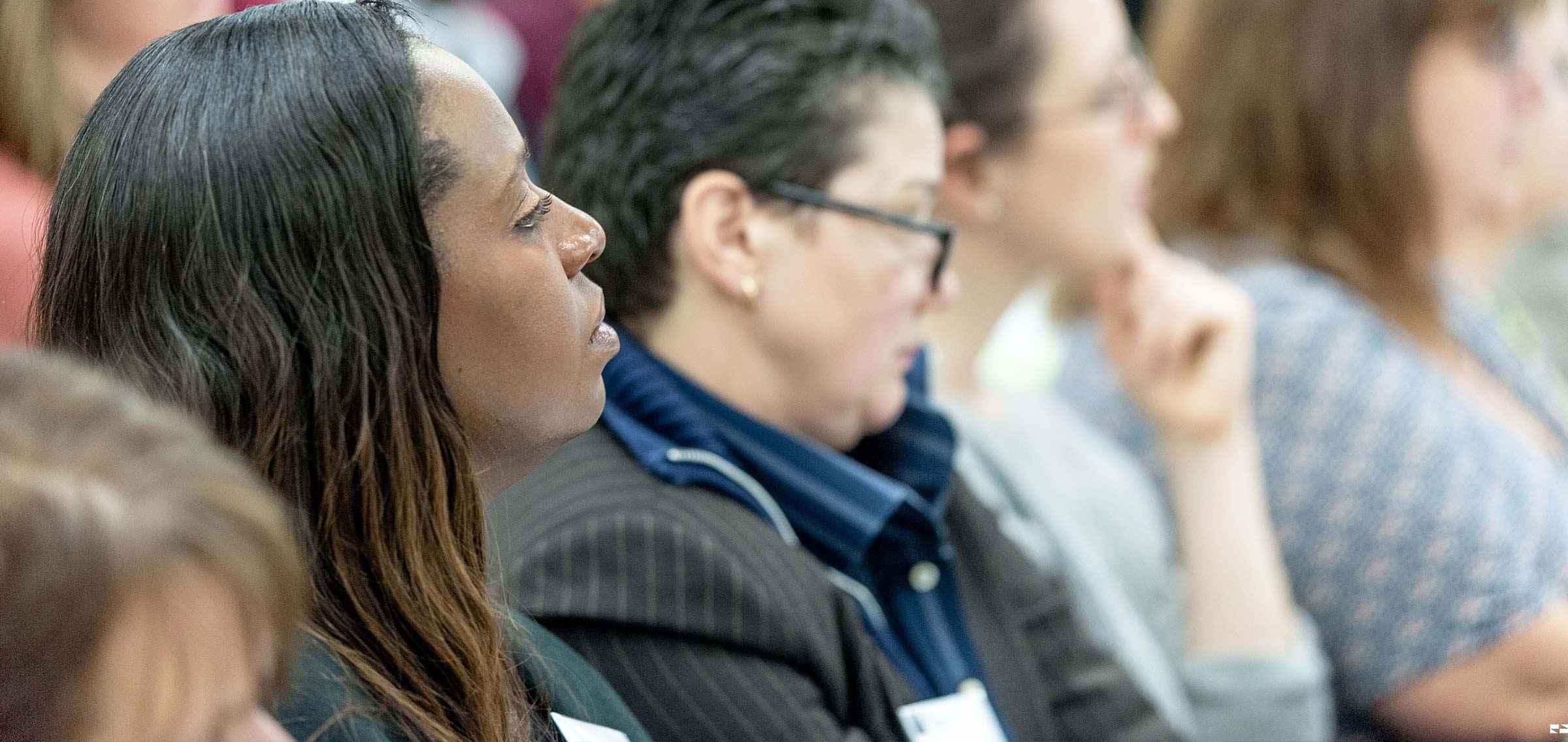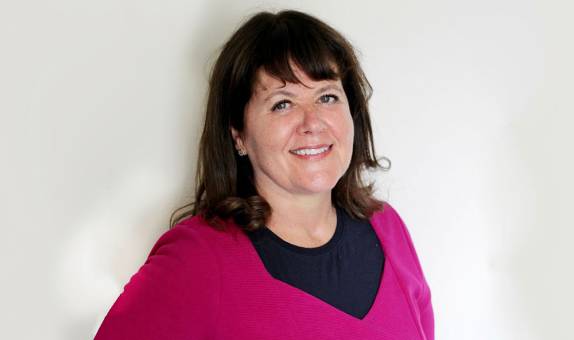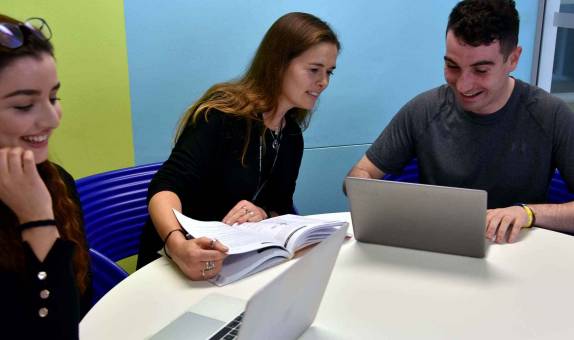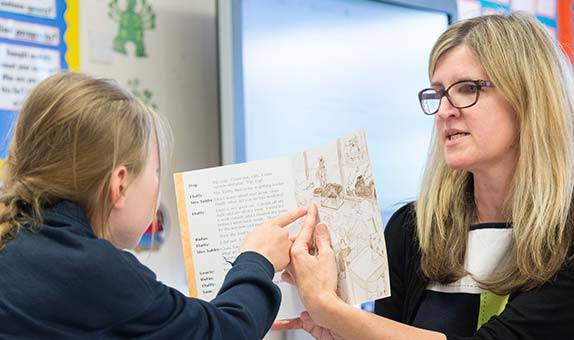Education MA
Why choose this course?
The MA Education has been designed in consultation with employers and education experts from a range of training and education providers across the education continuum, i.e. early years, primary, secondary, Further Education and Higher Education, as well as alternative education provision. This has ensured that the curriculum content is conceptually and practically relevant but is also flexible enough to respond to contemporary issues, research and policy changes as they arise in the education field.
This course will enable you to develop enhanced knowledge in subject areas pertinent to your employment role, interests and/or future career aspirations. There are opportunities for you to select focus areas for study to personalise learning relevant to your practice and/or ambitions.
You will be provided with opportunities to develop advanced knowledge from education experts and specialists across the education field, and to critically examine the most recent research and theories relevant to professional practice. Studying together brings a richness of different knowledge and experience and enables the development of a professional and supportive community of learners, whilst extending your professional networks.
You will design an enquiry, incorporating critical and ethical dimensions, and research-informed knowledge, to address an issue at the forefront of your professional practice.
| Mode | Duration | Start date |
|---|---|---|
| Part time | 2 years |
October April |
April entry is ONLY for those applicants who already hold 60 masters-level credits – before making an application please contact the programme administrator educationmasters@kingston.ac.uk.
| Main Location | Kingston Hill |
Reasons to choose Kingston University
- This course has been designed in consultation with employers and education experts from a range of training and education providers across the education continuum.
- As part of your Professional Practice Study you will design your own enquiry to address an issue at the forefront of your professional practice.
- Kingston has expertise in working with research professionals at masters and doctoral level, ensuring you get the best experience.
What you will study
Please note that this is an indicative list of modules and is not intended as a definitive list. Those listed here may also be a mixture of core and optional modules.
Year 1 (April 2025)
Year 2 September 2025
Year 1 September 2025
Year 2 September 2026
Core modules
Research Methods for Professional Practice
30 credits
This module provides an introduction to the ethical, political, methodological and epistemological issues relevant to educational research within a variety of contexts. You will discuss and critically analyse the purpose and application of educational research with regard to policy and practice.
You will learn about key methodologies and a range of data collection tools, including qualitative, quantitative and mixed method approaches to research design. This will support you with your dissertation research.
As a professional, you will explore the ethical complexities associated with practice-related research. You will develop critical responses to existing theoretical discourses to enable independent research into real world settings, including your workplace and beyond.
Core modules
Designing a Research Proposal
30 credits
This module is an introduction to the process of designing a research proposal will highlight the value of systematic enquiry in specific practice settings. You will design your research proposal, exploring the questions, rationale, literature to be reviewed, methods of enquiry and data analysis tools.
Research Dissertation
60 credits
You will undertake a research dissertation on a well-defined issue of professional practice to provide direct experience of 'real world' choices and decisions as a researching professional. Through your research, you will explore the relationship between policy, professionalism and practice. You will consider the ethical practice implications around communicating and disseminating the outcomes of your research dissertation.
Core modules
Contemporary Practice 1
30 credits
This module introduces you to the concepts of theoretical and professional perspectives in aspects of contemporary education. The main features of the module include the critical examination of social, political and cultural factors affecting or inhabiting different professional practice contexts, and the conceptualisation of how these might manifest in professional experience. The module provides you with the opportunity to examine contemporary issues that are relevant to education, and to explore factors relevant to and impacting upon professional practice and context.
Critical Reflection and Reflexivity
30 credits
This module introduces you to the concepts of critical reflection and reflexivity in professional practice. You will explore a range of ethical perspectives relevant to working with children, young people and/or adults in relation to policy formulation, practice-orientated knowledge and professional skills and attitudes. There are opportunities to critically examine theories and approaches to reflection and reflexivity and to explore their value and purpose within contemporary professional practice. Assumptions, perspectives, and decision-making will be critically explored and contextualised within unique practice settings.
Professionalism and Partnership
30 credits
This module introduces you to the complexities involved in working as a professional in the education sector and its many forms of partnership. There is critical examination of theory and research around what it means to be a professional educator, and an exploration of contemporary aspects of professionalism and the notion of professional trust. You will study recent and current events and contexts that may impact upon the dynamics and processes through which professional relationships and partnerships are developed. You will explore the benefits and challenges of working in partnership, how tensions might arise and how solutions to those tensions might be found and enabled.
Core modules
Contemporary Practice 2
30 credits
This module further enhances your knowledge and understanding developed in Contemporary Practice 1.
You will examine concepts of theoretical and professional perspectives in aspects of contemporary education, relevant to specific roles within the education sector.
During the module, you will select a contemporary issue affecting or inhabiting your individual professional practice and then conceptualise and disseminate to others how it impacts your professional experience.
Professional Practice Study
60 credits
This module provides the opportunity to develop advanced and in-depth knowledge and understanding of an aspect of professional practice unique to your professional context.
It draws together learning from your prior modules to inform a focussed study on a well-defined issue relevant to an individual's professional role, interest, ambition and/or environment.
A key feature of this module includes the development of a contextualised proposal for a professional practice study.
To do this successfully, there is critical engagement with theoretical and methodological frameworks and critical exploration of ethical issues and moral choices which inhabit practice-oriented study.
Entry requirements
Teaching and assessment
The MA Education programme structure consists of five modules with a total of 180 credits at level 7 that are typically completed over a period of two years part-time. This course uses a range of teaching and assessment methods which have been designed to support your learning and achievement of the learning outcomes. The course has been developed with reference to the Kingston University Academic Framework which sets-out core principles relating to Course and Credit Structure (including Module delivery Structure and Pattern, and Learning Hours and Learning Formats); Curriculum Design (including Learning Design Principles and Inclusive Curriculum); and Future Skills.
Who teaches this course?
This course is delivered by the Department of Education.
Kingston University's Department of Education is committed to offering relevant, practical and accessible courses, and is consistently ranked among the top education departments in the country.
Fees for this course
Additional costs
Depending on the programme of study, there may be extra costs that are not covered by tuition fees which students will need to consider when planning their studies. Tuition fees cover the cost of your teaching, assessment and operating University facilities such as the library, access to shared IT equipment and other support services. Accommodation and living costs are not included in our fees.
Where a course has additional expenses, we make every effort to highlight them. These may include optional field trips, materials (for example, art, design, engineering), security checks such as DBS, uniforms, specialist clothing or professional memberships.
Facilities at Kingston Hill
There is a wide range of facilities at our Kingston Hill campus, where this course is based.
Kingston Hill is a leafy, hillside campus situated about three miles away from Kingston town centre. It is a quiet, secure place to study with easy access to London, meaning it provides the best of all worlds for our students.
Find out more about the Kingston Hill campus in the virtual tour.
Library
One of the highlights of the Kingston Hill campus is the modern library, called the Nightingale Centre after Florence Nightingale, who was a regular visitor to Kingston Hill.
The library provides a spacious and attractive place for students to meet and study and features a cafe, more PCs and zoned study areas. Long opening hours give you plenty of access to specialist education books, journals and online resources.
Find out more about the Nightingale Centre in the virtual tour.
Computer and online facilities
There are many computers (PCs and Macs) available for you to use across the Kingston Hill campus when you need a place to study. Access to the wireless network across the campus means you can also work from your laptop or mobile device.
Using IT to support your studies is crucial. Kingston has an innovative virtual learning environment called Canvas. This allows you to access course materials and contact fellow students and staff while away from the campus.
Extra activities for this course
Keynote events will be an integrated feature of the taught weekends and will be calendared in the Department of Education diary.
The events and lectures in the Department of Education, and the wider University, enhance your studies and add an extra perspective to your learning.
As members of the Department of Education you will receive regular information about seminars, workshops, lectures and other research and teaching activities for and by staff and postgraduate students, including:
- BERA
- Erasmus project events
- European Conference for Educational Research
- London-based seminar programmes for educators
After you graduate
The role of the researching professional in education is of growing importance. Deputy head teachers, managers of children's centres, research development managers and subject-specific professionals may all use research skills to explore evidence.
Where this course will take you
The MA Education will help advance your learning, research and practice skills in a wide variety of education-related settings.
This programme helps to develop your employability skills as facilitators, co-ordinators, mediators and leaders of research-engaged professional practice.
It enables you to undertake a role of a researching professional in education-related contexts and practitioner research, and to lead collaborative learning networks for education. Applicants for practitioner research posts will benefit from the programme.
The role of the researching professional and interprofessional lead in education-related contexts is of growing importance in individual organisations and consortium settings. For example, deputy headteachers in schools and managers in children's centres may have responsibility for research projects to support improvements. Research Development managers in larger institutions and subject-specific lead professionals require research skills to explore evidence. Special Interest groups and informal collaborative networks contain research users and research creators.
The MA Education offers you a preparatory step towards professionally-relevant doctoral study in Education.
Current research in this subject
Many of our staff in the Department of Education are research-active. This ensures they are in touch with the latest thinking and bring best practice to your studies. Education research at Kingston includes work on:
- Subject pedagogy
- Curriculum design
- Planning
- Assessment
- Safeguarding
- SEND and inclusive practice
- Early Years
- Educational technologies
- Supporting more able learners
- Educational inequalities
- Policy
- History of education
Course changes and regulations
The information on this page reflects the currently intended course structure and module details. To improve your student experience and the quality of your degree, we may review and change the material information of this course. Course changes explained.
Programme Specifications for the course are published ahead of each academic year.
Regulations governing this course can be found on our website.










